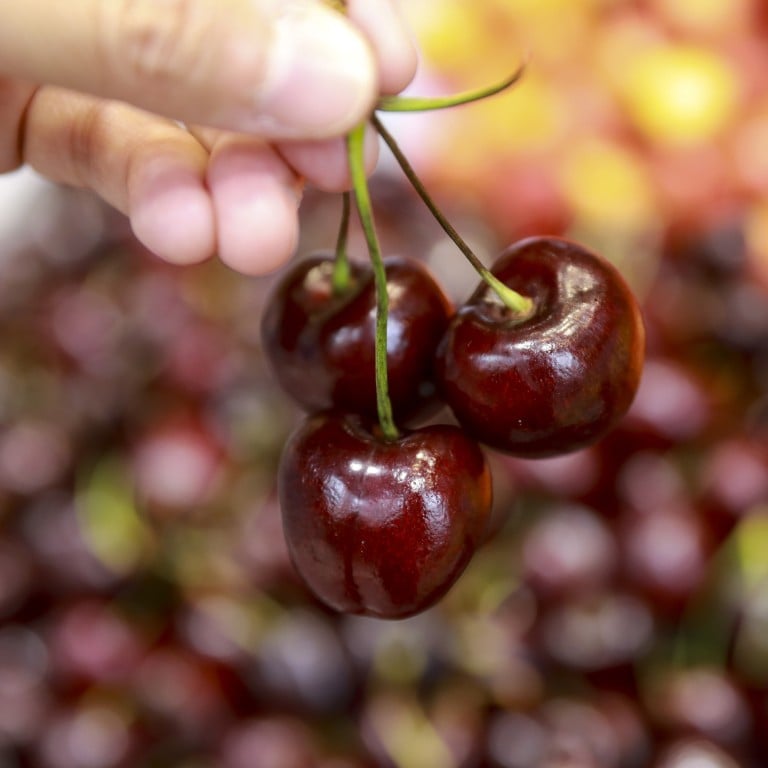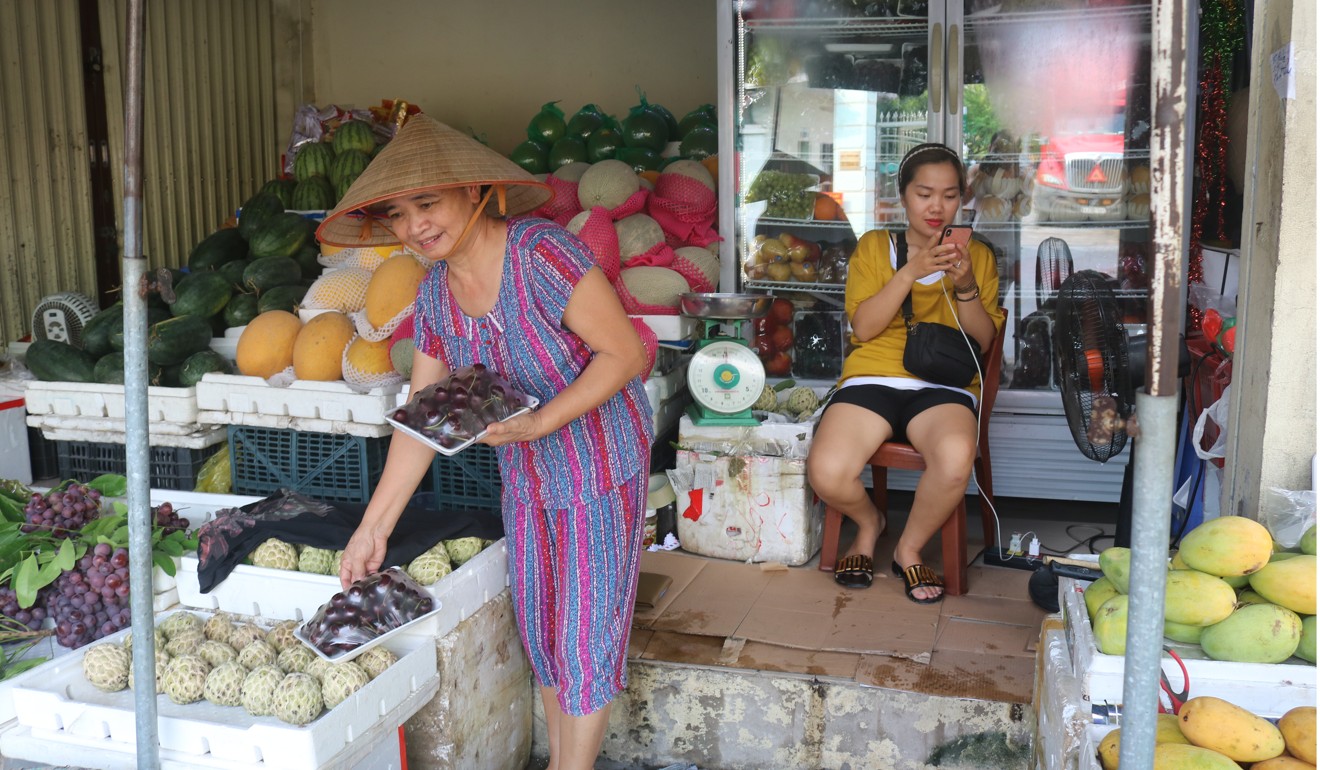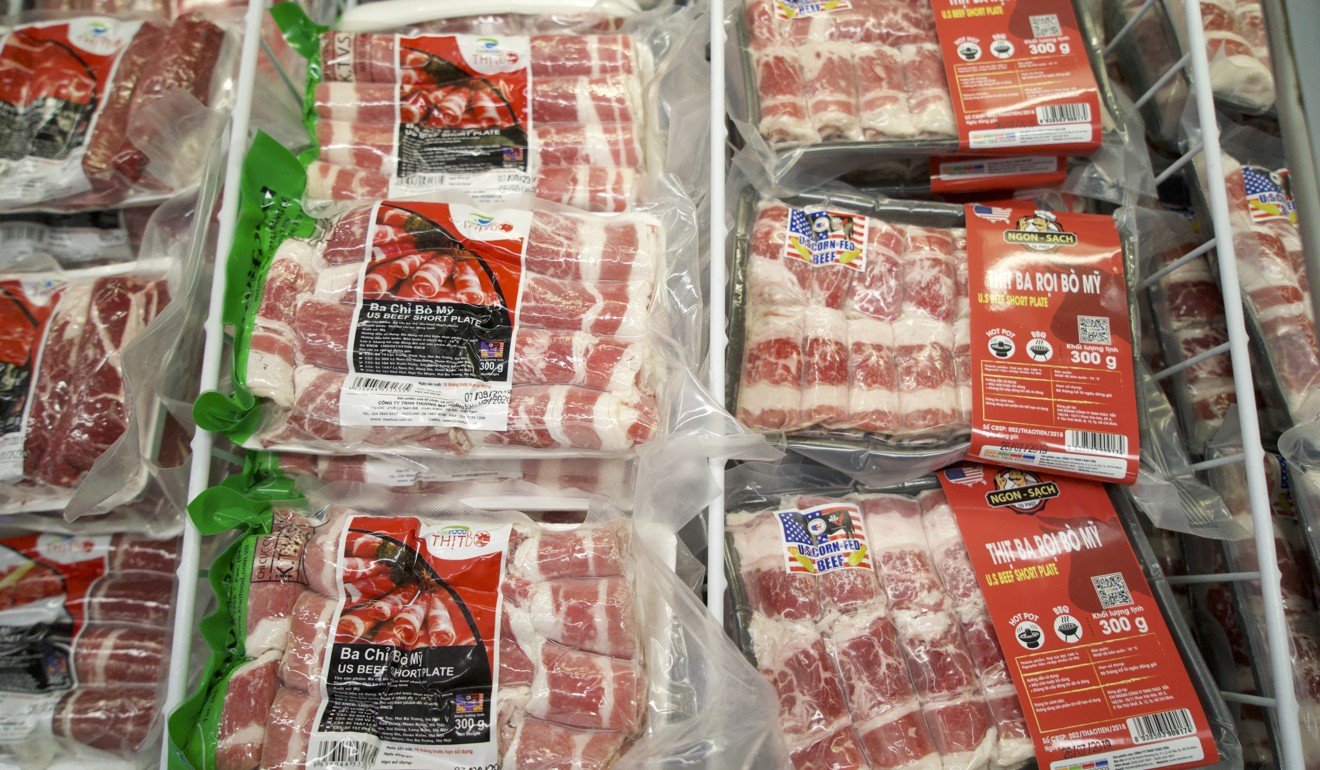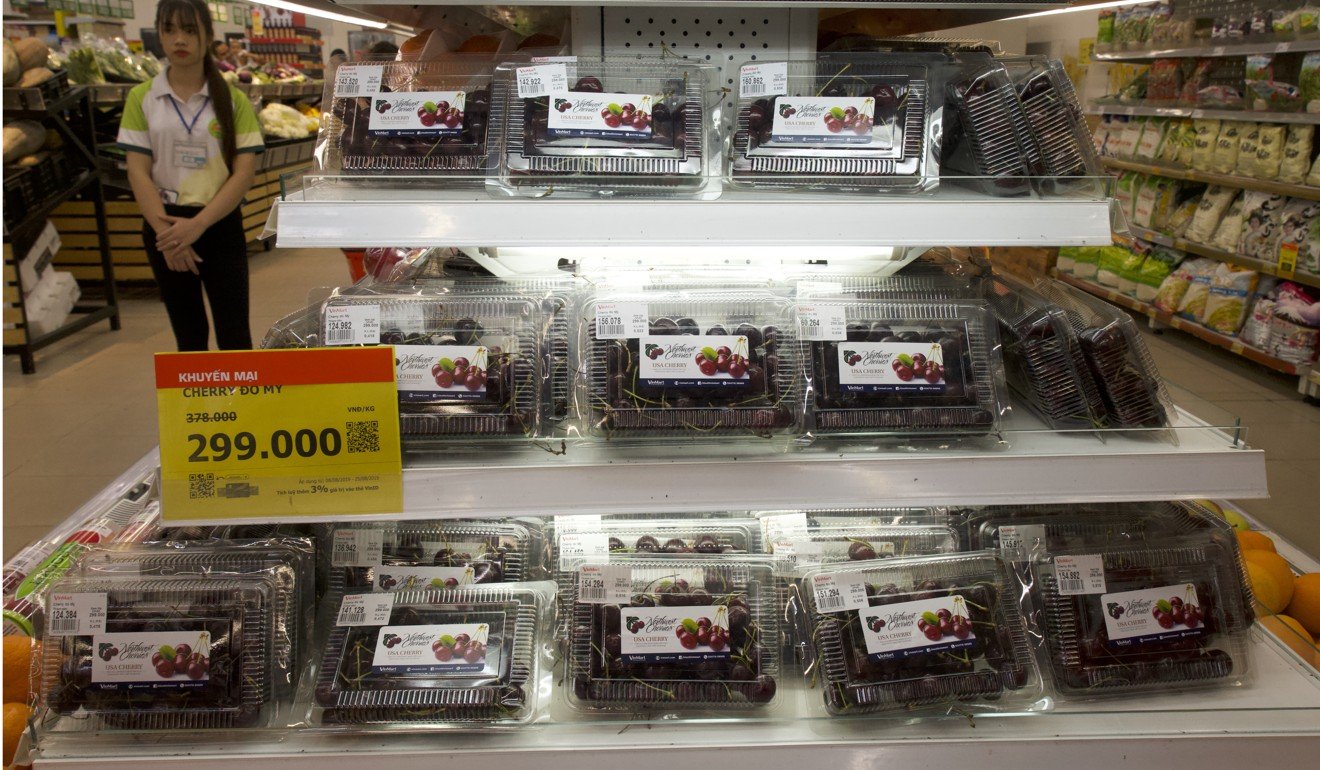
Vietnam gets a bite at the cherry as US farm exports find new market amid US-China trade war
- American producers fretting as fresh food approaches sell-by dates are being forced to offload meat and fruit at knockdown prices
- The tariff war fallout has helped introduce Vietnamese shoppers to imported treats such as cherries, but the change could spell disaster for local farmers
These days, however, she has been buying cherries for about US$10 a kilogram, around half of what the shop used to charge.
“I think many Vietnamese people have not eaten cherries, so I hope the price will drop more, so many people can buy them,” Hanh said as she snapped up her third kilo in just two months.

Shop sales were up 30 per cent in 2019 compared to the same period last year, Thuy added, and cherry purchases had increased a whopping 40 per cent.
VinFast: will Vietnam’s new locally made car take off?
Other fruits including apples and grapes have also found themselves in the cross hairs, as have meats and staple crops such as soybeans. Even the lobster industry has taken a hit.

But while American exporters fret about their produce reaching sell-by dates, Vietnamese retailers have been happily gobbling up stock at knockdown prices set by desperate middlemen. Supermarkets in the Vietnamese capital now prominently display US grapes, blueberries and cherries at big discounts, while cuts of US Department of Agriculture-graded beef are also being sold on the cheap.
American agricultural exports to Vietnam were up 20 per cent in the first half of 2019 compared to the same period last year, with a 70 per cent increase in fruits and vegetables, according to customs data. Le Dang Doanh, a retired economic adviser to five Vietnamese prime ministers, was enthusiastic about the change.
Beijing’s South China Sea stance is driving Vietnam into America’s arms
“The quality is excellent and people like it. I think it’s quite a welcome development,” he said.
The boom has even encouraged some Vietnamese to enter the industry for the first time. Nguyen Thi Thu, a kindergarten teacher in Hanoi, said she decided to sell fruit online as a side gig a few months ago when she realised how popular cherries had become among youngsters. A woman of modest means with a monthly salary of about US$300, she managed to net a profit of US$195 by moving 180kg over the course of two months.
“At first I had no intention of selling fruit, but when I bought cherries for my kids, they liked them, and I found many people liked them,” she said.
Besides Vietnamese taste buds, the made-in-America brand has also been a beneficiary. Dinh Tien Thanh, deputy CEO of Hapro, one of Vietnam’s largest import-export firms and the owner of a supermarket chain of the same name, said the company had started stocking US products for the first time. Many of the foods would have ended up in China. American wine, beef and chicken are among produce that will soon be on Hapro shelves. The US brand, said Thanh, sold well.
“I think the psychology of Vietnamese consumers is that they are very fond of US products,” he said.
But Thanh admitted some of the new US meats could come to displace the local industry. Imported chicken, pork and especially beef were actually cheaper and, arguably, of better quality, he said.
Earlier this month Deputy Minister of Industry and Trade Do Thang Hai warned of the risk to domestic agriculture, and economist Doanh said it would be a “challenge” for the Vietnamese meat industry to keep pace.

“Vietnamese producers are mostly small households with outdated techniques and not very good livestock, so the quality of the produce is limited,” he said, but the onus was on the local meat industry to modernise.
“I think it’s tough competition and Vietnamese producers must learn how to compete.”
But the new-found taste for American foods would bode well for Vietnam’s relations with the US, even if the trade war soon came to be resolved and US exports to China returned to normal, Doanh said.
Will Trump’s trade crusade ultimately benefit Southeast Asia?
However, Vietnam’s new market for American farm produce, Doanh said, might placate the president.
“I think it’s quite a good sign and a good development because Vietnam could demonstrate that it is ready to increase imports from the US and reduce the trade deficit,” he added.
“It depends on how much the Vietnamese people welcome the American products.”
Connect with us on Twitter and Facebook


